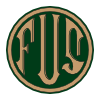Theme
The Background
The development of computers and the internet has affected the work of scientists in countless ways. One of them is that it has made it possible to dramatically reduce the cost of producing scientific publications and making them easily available worldwide. This has breathed new life into the old scholarly ideal of spreading knowledge free of charge to all those interested, rich and poor, close by and far away, as soon as it is reliably established.
Yet, the domain of scientific publication remains dominated by an increasingly rigid hierarchy of printed journals sold at high, sometimes extortionary prices by large private publishing groups. In this context, a number of initiatives have sprung up independently to short-circuit established channels and use the internet to make the outcome of research available free of charge without sacrificing the standards of conventional publishing.
Among many others, the Budapest Open Access Initiative, launched in February 2002 by the Soros Foundation, for example, is a comprehensive effort in the same direction. Making the scientific literature available for no payment, it says "will accelerate research, enrich education, share the learning of the rich with the poor and the poor with the rich, make this literature as useful as it can be, and lay the foundation for uniting humanity in a common intellectual conversation and quest for knowledge." As means to this end, it actively fosters the development of standardising self-archiving and of setting up of electronic peer-reviewed journals.
The Forum
The goals of such initiatives are bound to be congenial to the University Foundation, whose purpose is to further scientific research and higher education. However, the objective of the Forum was not to advertize it. It was rather to subject it to an open critical discussion, with the participation of people holding divergent views about its potential and desirability.
Two sorts of questions are essential.
1. What can be done?
- Is it really possible for scientific publishing to do away with the intermediation of large profit-seeking organizations?
- Are there not some unpleasant, possibly even disastrous side-effects to be expected, which would soon take us back to the status quo or worse?
- What can be learned from existing experiments?
- And from an economic analysis of their generalization?
2. What must be done?
- Is it the duty of academic libraries to start boycotting high-price printed journals, however widely used, and rechannel their resources to supporting the new generation of alternative journals?
- Similarly, do scientists - especially the most prominent among them - have a duty to stop publishing in, refereeing for, and staffing the editorial board of conventional journals, however prestigious, in order to feed alternative journals with the best of their output?
- Finally, must education and research ministries, European institutions and other relevant bodies be encouraged to redirect their resources from subsidies to printed journals (whether direct or as a fraction of library budgets, research grants, development aid or whatever) towards providing the initial investment and recurrent funding of alternative free publishing?
Programme
14h-14h10 : Introduction
-
"The UF's Ethical Forum initiative"
by Prof. Jacques Willems, Chairman of the University Foundation. -
"Today's Forum: the key issues"
by Philippe Van Parijs, Hoover Chair in Economic and Social Ethics, Université catholique de Louvain
14h10-16h : "Freely accessible electronic publishing: Achievements, strategy, prospects"
- Dr Herbert van de Sompel, initiator (with Paul Ginsparg) of the Open Archives Initiatives, Coordinator of Digital library research & prototyping, Los Alamos Laboratories (New Mexico, USA). (document)
- Dr Jonathan Clark, Technology Director for Elsevier Science, the company behind ScienceDirect, one of the world's largest delivery systems of scientific, technical and medical information in electronic form (over 1500 journals). (document)
- Dr John Haynes, Head of Business Development and Assistant Director of the Journals Department, Institute of Physics Publishing (Bristol), one of the professional organizations that pioneered electronic publishing. (document)
- Prof. Raf Dekeyser, director of the Library of the Katholieke Universiteit Leuven, member of the steering committee of SPARC Europe (an alliance of research libraries and research institutions that supports increased competition in scientific journal publishing). (document)
16h30-17h30 : Brief presentations of initiatives and reflections (abstracts):
Local initiatives :
-
NEUROEPIGROUP.COM: a new site for the free but discriminating dissemination of scientific results,
by Dr Paul BOON and Dr Kristel VONCK, Ghent University Hospital. (document) -
CERES: A step towards interactive electronic scientific publication by
Dr Samuel DUPONT, Centre de Recherche sur la Biodiversité, UCL. (document)
Co-operative initiatives :
-
BICTEL/e : a multi-institutional electronic repository
by Charles-Henri NYNS, chief librarian UCL and co-initiator of the Communauté française's self-archiving project. (document) -
Electronic publishing in languages other than English: A project for a portal of French-language scientific journals.
by Carolyn DOUGHERTY (Ingenta), Georges HOYOS (De Boeck) and Marc MINON (ULg, LENTIC). (document)
Reflections :
-
Commercial publishers: friends or foes?
by Françoise VANDOOREN (Service des bibliothèques, ULB) (document) -
"Copyright legislation: friend or foe?"
by Prof. Marie-Christine JANSSENS, Centre for Intellectual Property Rights, KuLeuven. (document)
17h30-18h30 :
- General discussion and comments by the keynote speakers
- General comments by Rainer Gerold, Director of the department "Science and Society", European Commission, DG Research
- Concluding comments by Philippe Van Parijs (document)
